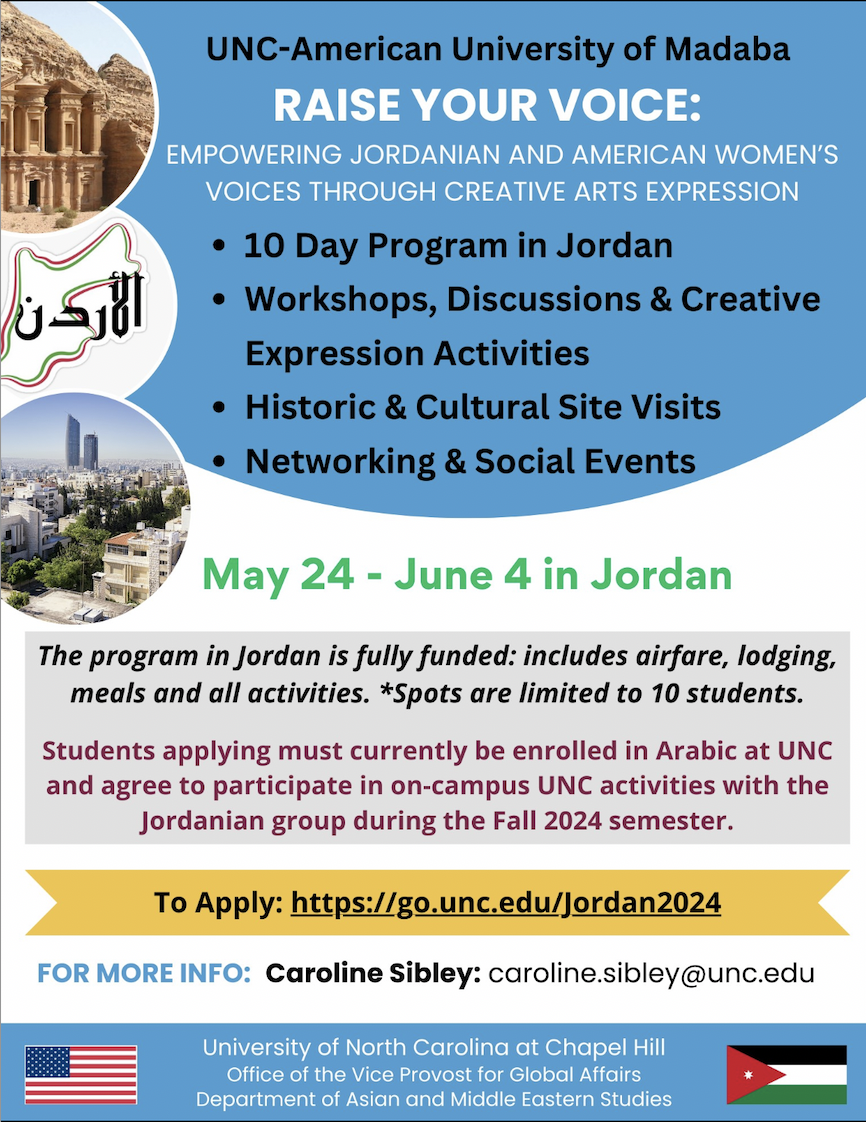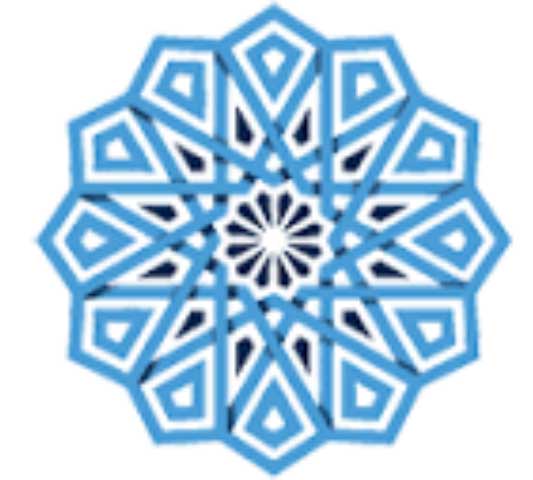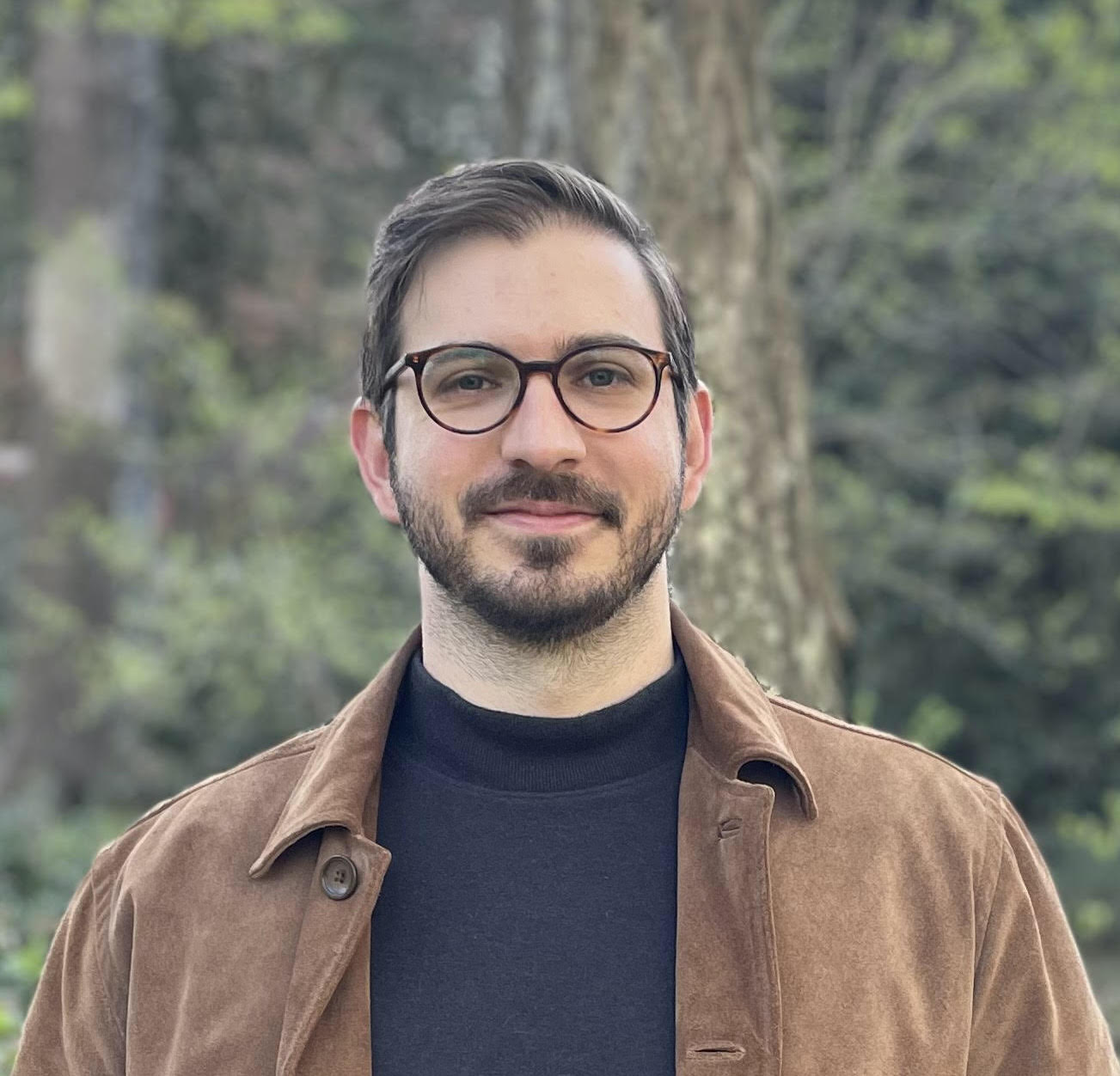 Borders, both geopolitical and social, have always fascinated Layla Quran ’15. Originally from the West Bank, Quran herself has crossed many borders in her personal and academic life.
Borders, both geopolitical and social, have always fascinated Layla Quran ’15. Originally from the West Bank, Quran herself has crossed many borders in her personal and academic life.
Quran moved to Greenville, North Carolina, from East Jerusalem with her family when she was four years old. She said that both her personal experience and time at UNC fostered and facilitated her interest in the experiences of dislocated peoples and minorities across the globe.
“I was brought up to question things. I was brought up to be very accepting of other people, to learn about other people,” she said.
Currently pursuing a master’s degree in journalism and Near Eastern studies at New York University, Quran graduated from UNC with a bachelor’s degree in global studies. While at Carolina, she focused her work on minority populations in the Middle East.
Quran conducted her first undergraduate research project her freshman year at UNC—with Duke University’s BorderWork(s) Lab. She interviewed Iraqi refugees in order to investigate the effects of the war on borders between Sunni and Shi’ite Muslims. Her interest in physical and psychological borders was inspired by her own experience of encountering obstacles traveling to Jerusalem as a Palestinian.
That same summer, she visited Palestine for another research project on how Palestinian artists react to and interpret the Boycott, Divestment and Sanctions Movement. Quran later traveled to Turkey to research the relationship between the state and its Kurdish minority.
Quran explains that of all of the places she’s visited and lived, she would most like to introduce UNC students to Palestine.
“Palestine is so different because on Western world maps, it doesn’t even exist — it’s not even labeled. It’s something that exists in the hearts and minds of the people that are from the country,” she said.
Since 1948, the borders of modern Israel in the former British Mandate of Palestine have been under dispute. Approximately half of Palestinians live in historic Palestine, most in the West Bank and Gaza Strip. The other half are dispersed across the Middle East and the globe. The ambiguous legal status of Palestinian statehood is reflected in the decisions of map makers — in some maps Palestine displaces Israel, in others Palestine is comprised of the occupied territories. Often, as Quran notes, Palestine disappears entirely.
Quran is interested in how minority groups express their identity and interact with the majority. Personal narratives are central to Quran’s work, allowing her to showcase the voices of underrepresented groups.
“For other minorities in the U.S., other minorities abroad, it’s really important to own our own narratives and share our own narratives — to demand the opportunity to do so, especially in the mainstream,” she said.
During her last semester, Quran began organizing her second multimedia exhibition for the Carolina Union — the continuation of an earlier exhibition that focused on Muslim scholars and students in the Triangle. The same day she began her work, she learned of the tragic death of three Muslim students, UNC’s Deah Barakat and Yusor Abu-Salha, and Razan Abu-Salha, a student at North Carolina State University.
“Once we found out what happened, we knew that we had to honor Deah, Yusor and Razan in some way,” Quran said.
The final exhibition included a wall dedicated to the slain students, with quotes and artwork honoring their lives.
“It was very bittersweet, but it also made me see, made me understand more the power of art and the power of good journalism,” she said.
In addition to her research and multimedia projects, Quran was actively involved with the Campus Y, the Southern Oral History Program at the Center for the Study of the American South and Students for Justice in Palestine during her time at Carolina.
This past summer, Quran embarked on her latest research project. She visited Jordan on a Davis Project for Peace grant to study the country’s diverse migrant worker population and the social and economic issues they face.
Quran notes that she benefitted from UNC’s status as an academic research university and the funding made available to support her scholarly interests. She also credits the Office of Undergraduate Resources and her professors and advisors at UNC for helping her pursue her interests.
“No idea is too big,” Quran said. “I think that if you have a simple idea, find your advisor, find someone who really believes in that idea. There are all these people who want to help you go wherever you want to go and study whatever you want to study — and it’s a matter of understanding those resources.”
Follow Layla Quran on Twitter @theLaylz.
By Tat’yana Berdan ’16





